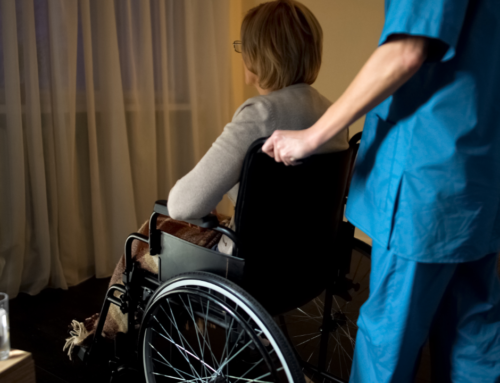In recent years, reverse mortgages have become a popular option for many seniors. For some Utah seniors, a reverse mortgage is a perfect solution. For others it may be a bad idea. I have invited my son, Jack K. Helgesen, a senior mortgage broker, to help me answer some of frequently asked questions I get about reverse mortgages for this article.
What is a reverse mortgage?
A reverse mortgage is a type of mortgage in which you can borrow money against the value of your home. No repayment of the principal or interest is required until after you die, or your home is sold. You must be 62 or older and have equity in your home to qualify.
When can a reverse mortgage help me?
A reverse mortgage is typically best for seniors who are “house rich and cash poor,” and need money for support or medical care. Here are two scenarios in which a reverse mortgage may be beneficial:
- Divorce: After 35 years of marriage, Tom and Ruth divorced. Ruth wanted to keep and live in the home, but she could not afford to pay Tom his equity and did not qualify for a traditional mortgage. A reverse mortgage gave Ruth money to buy out Tom’s equity, stay in her neighborhood with her life-long friends, and stay in her home without rent or mortgage payments.
- Lost income from the death of a spouse: When Grace lost her husband and his income, she needed $500 more per month to supplement her social security income to pay for everything she needed. She had plenty of equity in her home, but she did not want to move out and sell it. She found a reverse mortgage which would pay her an annuity of $500 per month for her life and allow her to stay in her home without monthly payments. The cost of the annuity will be collected from the sale of her home after her death.
What tricks are used by unscrupulous reverse mortgage brokers?
Mortgage brokers are often motivated by money and commissions. Reverse mortgages are a growing market. They may not want to tell you the downsides of a reverse mortgage, the risks, or the fine print of the contract.
You should be careful and ask a lot of questions. Agree to a loan only after you are ready and confident this is right for you. If you do not understand the terms of the mortgage, you should contact an elder law attorney for advice.
Can I be forced to move out of my house?
Yes, in a few instances you could be. In a reverse mortgage, you are still required to pay property taxes, homeowner’s insurance, and general maintenance on the house. This is still your home and you need to take care of it. If you get behind on taxes, then the lender could foreclose on the property. More risk applies when only one spouse is in on the reverse mortgage, and something happens to the borrower. If so, the mortgage will need to be paid after the death of the mortgage borrower. If the survivor cannot pay, the house will have to be sold. This can be avoided by having both spouses on the mortgage and agreeing to no repayment while one of them is alive. This must occur at the time of the loan.
What if am receiving payments and I live longer than my life expectancy?
If this happens, you made a very good decision. The lender will lose money, not you or your heirs. This is because the bank agrees to pay you until you pass away.
What are the hidden costs?
Most “hidden costs” must be fully disclosed under recent federal laws, and closing costs have limits, but that doesn’t mean these mortgages are cheap. Most have hefty up-front insurance costs you need to be aware of. These insurance premiums are not all bad because they guarantee you get all agreed upon loan payments throughout the loan even if the lender goes bankrupt, but they can take a good chunk of your equity up front.
Who pays the mortgage and when?
The good thing about reverse mortgages is you make no mortgage payments, and the loan is not repaid until after your death as long as you do not sell the house.
When is a reverse mortgage a bad idea?
There are several situations where getting a reverse mortgage is a bad idea.
- You want to leave your home to your heirs: after you pass away, the bank takes your house to re-sell. It doesn’t belong to you or your family anymore.
- You’re not going to live in the house: Many retirees take time to travel the world. Others have medical problems that prevent them from being able to live on their own or age in place. Not living in the home ends the reverse mortgage.
- You have dependents living with you: if you have someone living with you who cannot afford their own place by themselves, a reverse mortgage would likely cause them to become homeless when you pass away.
- You can’t afford property taxes or maintenance costs: in order to stay in the home, you must keep it in good condition and continue paying property taxes.
Where can you get good advice?
If you’re trying to decide whether a reverse mortgage is right for you and want to know how it affects your estate plan, contact us for a free consultation. Our elder law attorneys have years of experience helping Utahns and want to help you too. We’ll give you honest legal advice that fits your situation.





Leave A Comment